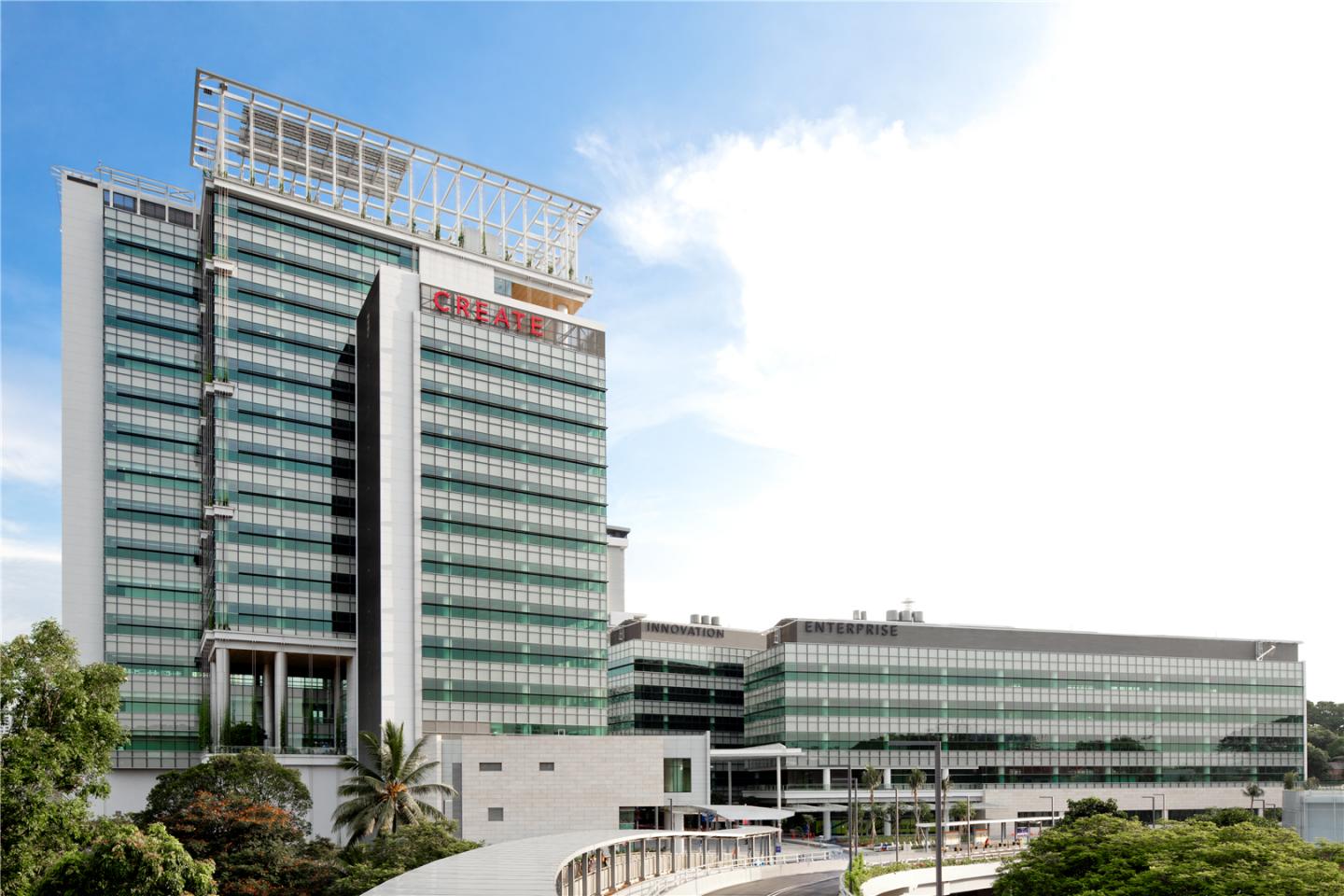
Credit: © CREATE
The French National Centre for Scientific Research (CNRS) strengthens its presence in Singapore by partnering the Campus for Research And Technological Enterprise (CREATE). CNRS@CREATE, which is CNRS’ first overseas subsidiary, will work with Singapore’s universities, research institutions, and CREATE’s international partners to conduct research and application of technologies in areas that are relevant to Singapore’s social and economic needs. Its inauguration takes place in the presence of CNRS Chairman and CEO Antoine Petit on 25 June.
With the success of its large scientific presence in Singapore (1), the CNRS established CNRS@CREATE to manage new research and innovation collaborations between the CNRS and Singapore. Dominique Baillargeat has been appointed as Director for CNRS@CREATE, CNRS’ first overseas subsidiary.
CREATE was established by the National Research Foundation in 2006 to increase the vibrancy and diversity of Singapore’s R&D ecosystem. By bringing together international research talent to work on projects of important scientific, societal and economic importance, CREATE represents a unique model for research collaboration. Today, researchers from 9 institutions – Massachusetts Institute of Technology (MIT), University of California Berkeley (UCB), Cambridge University, ETH Zurich, Technical University of Munich (TUM), Hebrew University of Jerusalem (HUJ), Centre National de la Recherche Scientifique (CNRS), University of Illinois at Urbana-Champaign (UIUC), and Shanghai Jiao Tong University (SJTU) – are co-located in CREATE, and collaborate with the National University of Singapore and Nanyang Technological University, Singapore on 14 interdisciplinary research programmes. The CNRS is the first research-performing organization to join the CREATE campus.
The CNRS aims to implement its first major research project by 2021. Between now and then, the CNRS is seeking to submit bilateral projects in fields such as energy, synthetic biology, and other topics.
The creation in Singapore of the CNRS’s first overseas subsidiary is also driven by a desire to transfer technologies. The research programmes of CNRS@CREATE could be conducted in partnership with French industrial actors present in Singapore.
An agile and responsive interdisciplinary plan, CNRS@CREATE is at the heart of the CNRS’s new international strategy.
(1) Including four International Research Laboratories (IRL): Image & pervasive access Lab (CNRS/ National University of Singapore/Université Grenoble Alpes/A*Star/Institut Mines-Télécom) specialised in AI and cybersecurity; CINTRA (CNRS/Thalès/Nanyang Technological University) specialised in nanotechnology; Majulab (CNRS/National University of Singapore/Nanyang Technological University/ Université Nice Sophia Antipolis/Sorbonne Université) specialised in physics; Biomechanics of cellular contacts (CNRS/ National University of Singapore) specialised in biology.
###
Media Contact
Veronique Etienne
[email protected]
Original Source
http://www.



